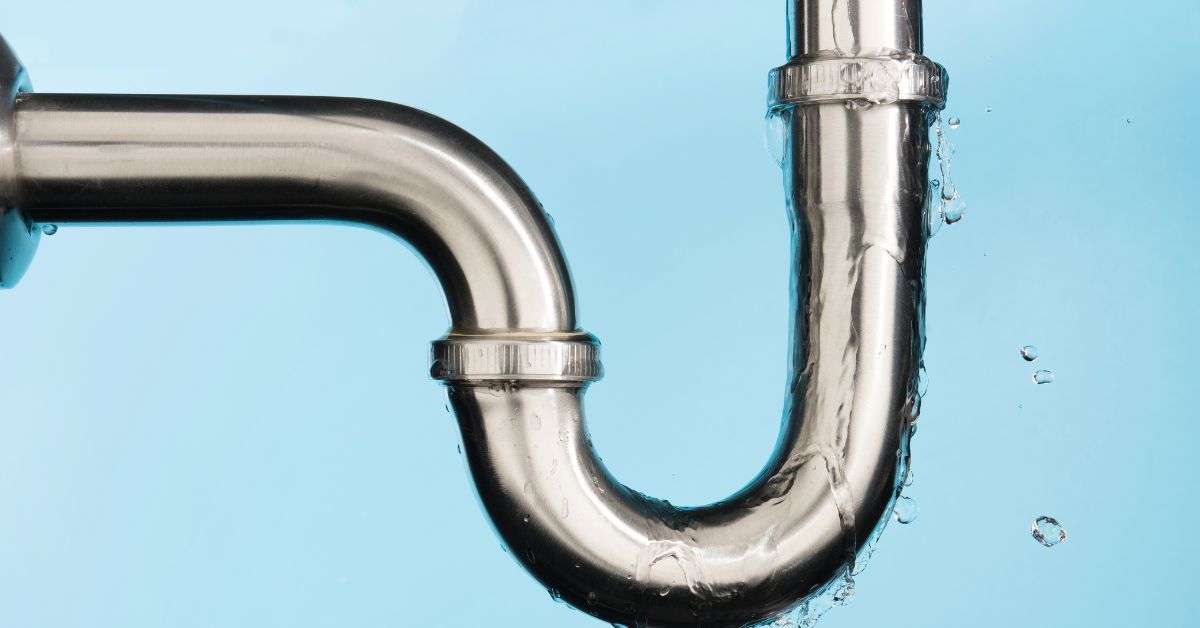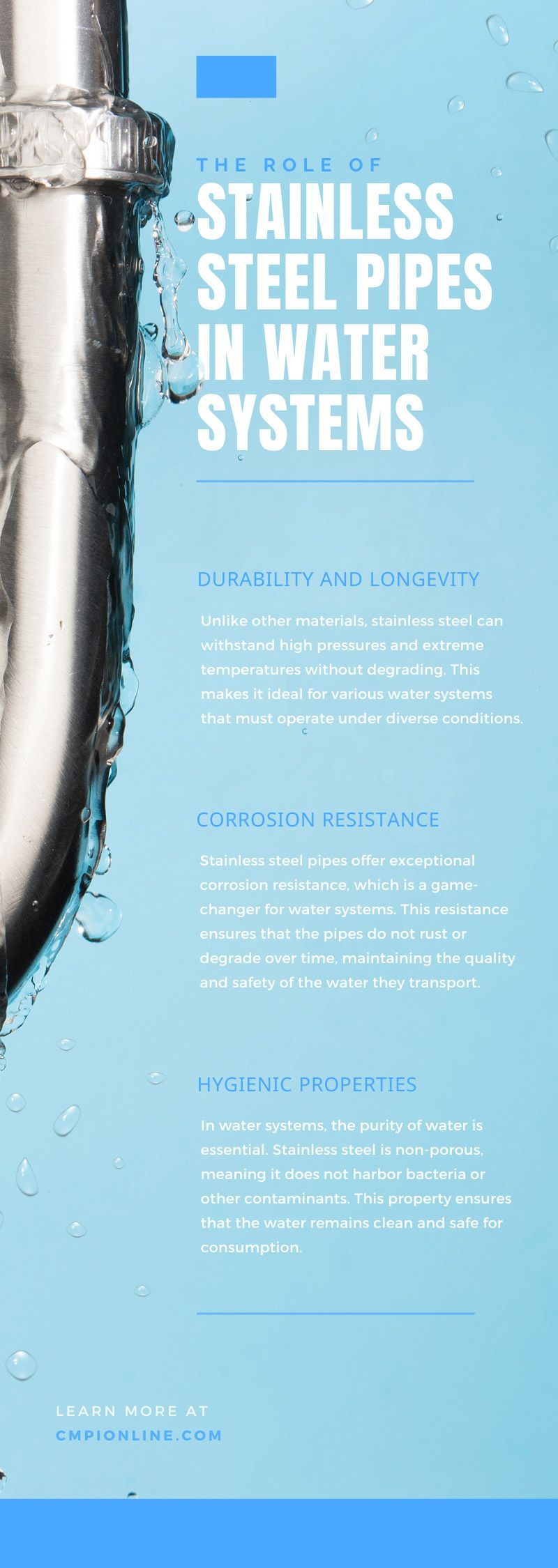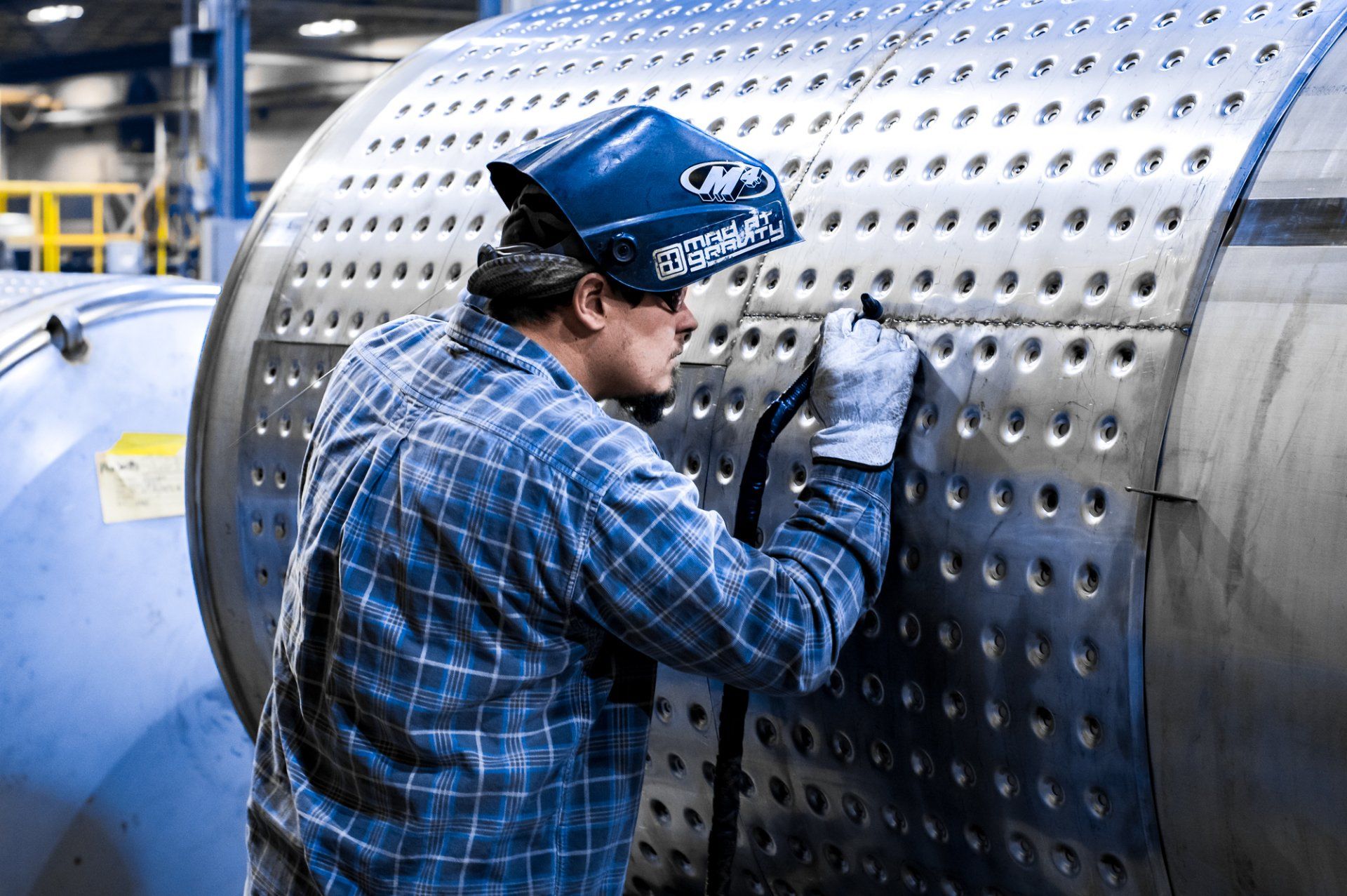The Role of Stainless Steel Pipes in Water Systems

Water systems are the lifelines of our daily lives, ensuring a consistent and safe supply of water for various purposes. From residential plumbing to large-scale industrial water treatment, these systems are indispensable. At the heart of these water systems often lie stainless steel pipes. Continue reading to explore the role of stainless steel pipes in water systems.
The Importance of Water Systems and Stainless Steel Pipes
Water systems are essential for cities, towns, and households. They ensure that clean water reaches every tap and that wastewater is efficiently removed. Without these systems, modern life would grind to a halt. Integral to these systems are the pipes that transport the water. Stainless steel pipes, with their numerous advantages, stand out as the preferred choice for many applications.
Durability and Longevity
One of the most significant benefits of stainless steel pipes is their durability and longevity. Unlike other materials, stainless steel can withstand high pressures and extreme temperatures without degrading. This makes it ideal for various water systems that must operate under diverse conditions. The inherent strength of stainless steel ensures that the pipes remain intact and functional for many years, reducing the need for frequent replacements and repairs.
Corrosion Resistance
Corrosion is a common issue in water systems, especially in environments where pipes encounter various chemicals. Stainless steel pipes offer exceptional corrosion resistance, which is a game-changer for water systems. This resistance ensures that the pipes do not rust or degrade over time, maintaining the quality and safety of the water they transport. This attribute not only extends the lifespan of the pipes but also minimizes maintenance costs.
Hygienic Properties
Another crucial aspect of stainless steel pipes is their hygienic properties. In water systems, the purity of water is essential. Stainless steel is non-porous, meaning it does not harbor bacteria or other contaminants. This property ensures that the water remains clean and safe for consumption. Additionally, stainless steel is easy to clean and sterilize, making it an excellent choice for applications where hygiene is critical, such as in hospitals and food processing plants.
Environmental Sustainability
Sustainability is more important than ever. Stainless steel pipes score high on environmental sustainability, as they are 100 percent recyclable, which means that old or unused pipes can be repurposed without losing their quality. This recycling process reduces the demand for new raw materials and minimizes environmental impact. Furthermore, the durability of stainless steel pipes means fewer replacements and less waste over time.
Applications of Stainless Steel Pipes
Stainless steel pipes are becoming increasingly common in residential plumbing. Their strength and corrosion resistance make them ideal for home water systems, ensuring a long-lasting solution that homeowners can rely on. Whether it’s for transporting drinking water or for use in heating systems, stainless steel pipes provide a reliable option that guarantees performance and safety.
In industrial and municipal water distribution systems, the demands on piping materials are even greater. These systems often deal with high volumes of water and operate under harsh conditions. Stainless steel pipes are up to the task, offering the robustness needed to handle such challenging environments. They ensure the efficient distribution of water, whether it’s for industrial processes or for supplying entire cities.
Water treatment plants play a crucial role in providing clean water. The pipes used in these facilities must be able to handle a variety of chemicals and processes without degrading. Stainless steel pipes are the perfect fit, thanks to their chemical resistance and durability. They ensure that the treated water remains uncontaminated and that the plant operates efficiently.
Comparison With Other Pipe Materials
When it comes to cost, stainless steel pipes may initially seem more expensive than other materials. However, a closer look reveals a different picture. The long-term benefits, including reduced maintenance and replacement costs, make stainless steel a cost-effective option. Its durability means fewer disruptions and repairs, which can save money over time. Additionally, the longevity of stainless steel pipes means that they offer better value for money in the long run.
Maintenance is a significant factor in the overall cost and efficiency of water systems. Stainless steel pipes require minimal maintenance due to their resistance to corrosion and wear. This contrasts with materials like iron or plastic, which may need frequent inspections and repairs. The longer lifespan of stainless steel pipes also means that they remain functional for decades, providing a reliable solution for water systems.
Innovations in Stainless Steel Pipe Technology
Innovations in welding techniques have further enhanced the appeal of stainless steel pipes. Modern welding methods ensure stronger, more reliable joints, reducing the risk of leaks and failures. These advancements also allow for more complex and customized piping systems that are tailored to specific needs. The result is a more robust and versatile solution for various water system applications.
Stainless steel pipes offer significant customization and design flexibility options. They’re manufactured in various sizes and shapes to meet the specific requirements of different water systems. This flexibility allows for more efficient and effective designs, optimizing the performance of the water system. Whether it’s a residential plumbing project or a large-scale industrial application, it’s easy to tailor stainless steel pipes to fit the bill.
The integration of smart technologies into stainless steel pipes is an exciting development. These smart pipes can monitor various parameters, such as pressure and flow rate, providing real-time data to operators. This information can allow operators to optimize the performance of the water system, detect issues early, and make informed maintenance decisions. The result is a more efficient and reliable water system.
Future Outlook
More industries and municipalities are recognizing the advantages of stainless steel and incorporating it into their water systems. This trend will likely continue as the benefits of stainless steel become more widely known and as new innovations further enhance its appeal.
While stainless steel pipes offer many advantages, there are also challenges to consider. One potential issue is the initial cost, which can be higher than other materials. However, the long-term benefits often outweigh this initial investment. Another challenge is ensuring proper installation and maintenance to maximize the lifespan of the pipes. Installers must receive proper training and leverage the use of advanced technologies to monitor and maintain the systems.
Custom Stainless Steel Pipe Fabrication
The role of stainless steel pipes in water systems is pivotal. From residential plumbing to industrial water distribution and treatment plants, stainless steel pipes ensure the efficiency and safety of various water systems. As innovations continue to enhance their performance and as sustainability becomes increasingly important, the future looks bright for stainless steel pipes.
At CMPI, we manufacture stainless steel piping for a variety of industries. We can apply the exact finish grade your pipes require to ensure that the final product meets your needs. Contact us today to learn how we can cut, polish, and form pipes based on your specific requirements—we look forward to hearing from you.






